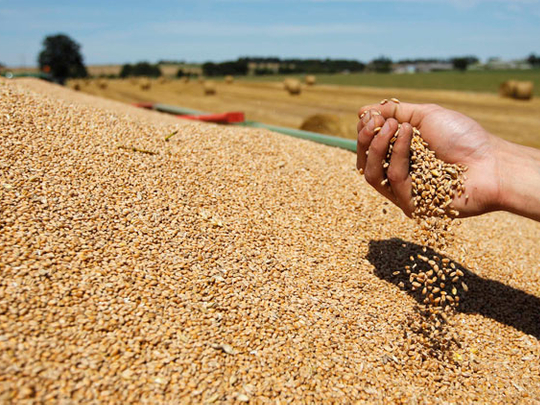
Rome: The world could face a new food crisis of the kind seen in 2007-2008 if countries resort to export bans, the UN’s food agency warned on Thursday, after reporting a surge in global food prices due to a drought-fuelled grain price rally.
A mix of high oil prices, growing use of biofuels, bad weather, restrictive export policies and soaring grain futures markets pushed up prices of food in 2007/08, sparking violent protests in countries including Egypt, Cameroon and Haiti.
Concern about extreme hot and dry weather in the US Midwest sent corn and soybean prices to record highs last month, driving overall food prices higher again and reversing the Food and Agriculture Organisation’s expectations for steady declines this year.
“There is a potential for a situation to develop like we had back in 2007-2008,” FAO’s senior economist and grain analyst Abdulreza Abbassian told Reuters.
“There is an expectation that this time around we will not pursue bad policies and intervene in the market by restrictions, and if that doesn’t happen we will not see such a serious situation as 2007-2008. But if those policies get repeated, anything is possible.”
Grain markets have been boosted by speculation that Black Sea grain producers, particularly Russia might impose export restrictions after a drought there hit crops.
Higher food prices mean higher import bills for the poorest countries, which do not produce enough food domestically.
Charity Oxfam said that the surge in grain prices could drag millions of people around the world into conditions of hunger and malnourishment, in addition to nearly one billion who are already too poor to feed themselves.
Abbassian said the situation was still quite different from 2007-2008, when crude oil prices were at record levels, adding to farmers’ costs.
Abundant supplies of rice and sluggish economic growth should also ease the upward pressure on prices, but a lot will depend on how the weather develops for US crops and how much demand will be rationed in coming months, he said.
Food imports
Nations reliant on food imports, including Egypt, Pakistan, Bangladesh and Sudan, are especially vulnerable to unrest due to food shortage, according to a report by the National Intelligence Council, an adviser to the US government.
More than 60 food riots erupted worldwide from 2007 to 2009 as prices surged, the US State Department estimates. Production will need to expand 70 per cent by 2050 as 2 billion people are added to the population, according to the UN.
On the other hand, wheat production in Russia, the fourth-largest exporter, will decline 20 per cent this year, and in Australia, output will fall 19 per cent, the council said.
When Russian output retreated because of drought in 2010, the government imposed an export ban that lasted 11 months. Temperatures from eastern Italy across the Black Sea region into Ukraine reached 35 degrees Celsius or more last month, about 5 degrees above normal, US government data show.
India monsoon
India’s monsoon, which accounts for more than 70 per cent of annual rainfall, was 17 per cent below the 50-year average since June 1, the nation’s weather bureau said. The government extended a ban on exports of sugar, rice and wheat in 2009 after the weakest monsoon in almost four decades. The UN’s Food & Agriculture Organization cut its global rice-production estimate by 1.1 per cent on August 6 because of the monsoon.
Total grain output in Western Australia, the country’s biggest wheat growing area, may drop as much as 40 per cent as dry weather and frost threaten crops, according to CBH Group, the state’s biggest handler. Perth, the state capital, had the driest July since records began in 1876, according to the Bureau of Meteorology.












